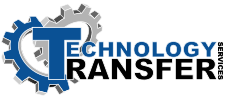The field of electrical and electronic technologies is vast and encompasses many technical disciplines. The Industrial Electronics and Electricity Series is designed to minimize extraneous theory and maximize learning by targeting the essential prerequisite knowledge required for a technician in an industrial facility. In this comprehensive series, the learner is presented basic electrical principles and circuit theory, followed by key topics for an industrial technician including Motors and Servos, Power Supplies, and Work Practices. The series also provides the learner with an introduction to common equipment and systems such as distributed control, PLCs, and VFDs to prepare the learner for more in depth training.
Basic Electricity Principles
Electricity is used every day and in every industrial field, yet few people know the details of how it works. The modules in this subject area cover basic electrical concepts, which include components, such as resistors, conductors, and insulators, and the basic laws that define their uses. The conclusion of this area defines power and how it is used in today’s industries.
DC Circuits
Within each electrical and electronic component is at least one electrical circuit. This subject area’s modules relay the key information required to understand electrical circuits and their operations. They provide insight to the Series, Parallel, and Series-Parallel circuits, as well as the means in which these circuits are powered and controlled.
AC Circuits
Power generation is a phrase that is used in power plants and industrial facilities alike. This subject covers the basic concepts for the generation of electricity, along with the concepts of inductance and capacitance. In addition, the transformer’s ability to transfer power will be explained, including its fundamentals, construction and types.
Motors and Servos
Industrial facilities rely on motors for the simplest task, like raising equipment, to the most complex functions, such as conveyer systems that send millions of units off each day. The modules in this subject explain the details of AC and DC motors, and their multiple methods of control. In conclusion, the final section of these modules ties the previous two subjects together by covering the fundamentals of servo drives.
Semiconductors
Electrical equipment has come a long distance since the first motor with a simple manual ON/OFF knife switch. In today’s industrial world the understanding of electronic components is critical for any technician. This subject area provides the basics of diodes, the fundamentals of transistors, and explains the complexity of semiconductors.
Power Supplies
Industrial facilities use a wide variety of power from the type of voltage, frequency, or current; to the protection of the equipment that is required. The modules in this subject area explain the concepts of simple rectifiers and power supply filters, while also providing detailed information for UPS. The methods for protecting both equipment and personnel are explained in Circuit Breakers and Fuses.
Digital Electronics
The digital age is upon us; the telegraph has been replaced with rapid communication that even allows computers to control equipment across an entire facility with little personnel involvement. This subject area explains the communication networks; as well as introduces PLCs and VDFs. To provide a better understanding of the programing of these complex devices, logic gates and number systems are also explained.
Work Practices
An industrial facility would fall to ruins without the proper work practices in place. This subject area focuses on the required skills of print reading, troubleshooting, and grounding of equipment. The knowledge of electrical safe work practices and test equipment is crucial for the technician in performing any timely critical repair.

